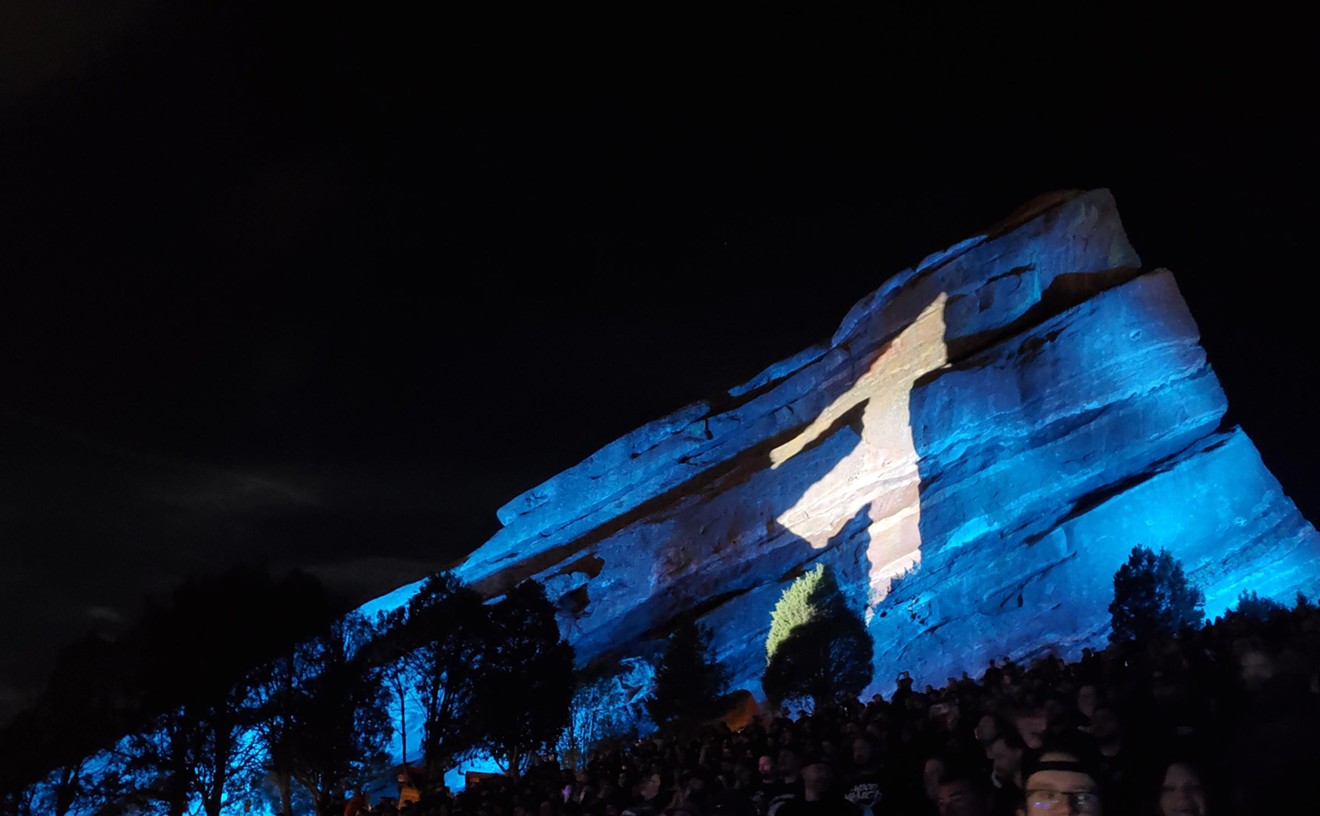But will anyone notice -- or care? As the hundreds of record-store owners who earlier this month attended the National Association of Recording Merchants convention or the throngs of disillusioned scouts and scenesters who dropped into this year's South by Southwest conference can tell you, it's not a great climate for any album from anyone. Things are bad all over, with sales stagnating in all genres in general, and rock in particular. A new offering from a Monster that's been hiding in the shadows for four years -- the music-industry equivalent of an ice age -- is in danger of coming in like a lamb rather than a lion. As Mark Keefe, the program director of a North Carolina radio station, said in a recent issue of Billboard: "While people like us at radio stations might think it's awful -- what happened to [Big Head Todd] -- the people who are just listening, they could care less. For them, it's like, 'Where ya been?'"
Still, there are some signs of hope for Riviera, which begins with a clanging guitar instantly recognizable as Mohr's, as if to remind listeners where the band left off. Hook- and melody-dependent, traditional to the core, the album is no great departure from any of the band's earlier work. That will probably come as a relief to dedicated fans, who turn up in pockets all over the place to support the group's ongoing live campaign, even if that very sameness alienates others. Stylistically speaking, Riviera's timing is pretty good: The album, which sold 4,000 pre-sale copies, has plenty in common with releases from a batch of other artists who saw surprising success last year, from Pete Yorn and David Gray to John Mayer and Jack Jackson. Maybe, as the band's longtime manager suggests, listeners are slowly returning to rock. "Everybody is looking for something solid and rocking and friendly," Mark Bliesener says.
Besides, Bliesener adds, Big Head Todd isn't all that concerned about moving huge numbers of "units" this time around. That's the kind of stuff you have to worry about when you're tethered to a major label, which will clear the entire floor of a corporate office building to count every bean and decide who gets to stay and who's cut loose.
Following disappointing sales of Live, Giant Records threatened to drop the band when Mohr refused to collaborate with outside songwriters. Then, as a fortunate consequence of merger mania, the band retained its independence and, more important, the rights to its unreleased material when Giant was dissolved into Warner Bros. Many of those songs made their way onto Riviera, along with newer material. In the intervening years, Big Head Todd continued touring and rebuilding Big as a bona fide label -- returning to the grassroots level where the band thrived before being lured by the notion of major-label success.
The difference between then and now is, perhaps, a heightened sense of realism. Maybe Giant was wrong to expect big numbers from a band such as Big Head Todd, whose specialty is middle-of-the-road melodic rock, replete with some unabashed balladeering and all the trappings of a traditional rock-and-roll power trio. It's a sound that appeals to older audiences who aren't as likely to care whether or not their favorite acts break new ground as long as the songs are good. Trendsetting is the dominion of the young, not the Triple A radio fan. "Their audience is surprisingly wide," Bliesener says. "It's guys who like straightahead guitar rock, college drunks, college weirdos, people who fell in love listening to 'Bittersweet.' That's fine."
Still, the Giant experience, as trying as it was, was not without its advantages. For one, the company had money, something the new Todd camp has had to generate through unlikely sources: In a strange mating of regional talent, Colorado Avalanche left wingsman Shjon Podein stepped up as one of Riviera's primary backers.
"Without them ever having had major-label support, it wouldn't really have been possible for them to be doing what they are now," Bliesener says. "Without an existing fan base, it's really difficult. But they've laid the groundwork, and the label helped with that. Now they have really gotten themselves to this sort of ideal window that everyone aspires to. They're best friends, they started a band in high school and went through this wave of notoriety together. Now they own and control their merchandise on a label that's artist-owned and -operated. They don't have to have the knee-jerk response to Soundscan or whatever.
"The advantage of being an independent operation is that we don't need to make mega numbers to make money," Bliesener adds. "The major-label business is like the movie business: If you don't have a huge first weekend, you're dead. You have to go out smoking. For us, we are our only priority. We don't have to worry about getting dropped. And for us, if we sell 50,000 records, that's great for an independent band."
We might have seen this coming. Colorado can now officially claim Phix as its own Phish cover band. According to the Boulder four-piece, "Phix fans have stated that when they close their eyes at shows or listen to Phix bootlegs, they can't tell the difference between the originators and these imitators." Phix performs Tuesday, April 2, at the Fox Theatre; Sunday, April 7, at Quixote's True Blue; and Thursday, April 11, at Herman's Hideaway. As they say, imitation is the sincerest phorm of phlattery.
And here's a happy event for your Easter weekend, one that really embodies the concept of renewal: The Spring Death Fest brings together some of the state's most severe heavy metal and hardcore outfits in a lineup that features Fog, Cephalic Carnage, ThroCult, Serberus, Yeast Infection, Excommunion, Acheronian Dirge and Deadspeak. The mayhemic marathon takes place Friday, March 29, at the Bluebird Theater; showtime is 6 p.m. Can't you just hear all of those cute little chicks chirping now?










